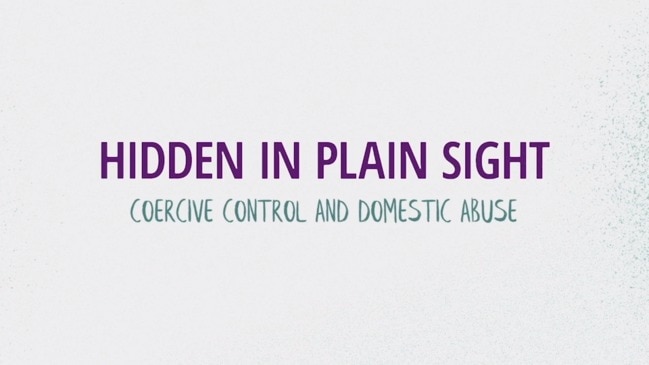South Australian government releases new coercive control laws
An Adelaide mother has shared how she lived for decades under the control of an abusive husband. But new laws could save others from a similar fate.

SA News
Don't miss out on the headlines from SA News. Followed categories will be added to My News.
Claudia* spent more than 30 years married to a man who controlled her every move.
She couldn’t be a minute late home from work or spend a dollar without her husband knowing.
And when the Adelaide mother-of-two finally broke free of her ex-husband he followed her to work, put notes in her letterbox and “parked behind me at the petrol station”.
“I was scared to do anything,” the now 62-year-old.
“He monitored exactly what hours I was working and when I should be home.
“Just a mere hug from my son was enough to send him into turmoil, he was so controlling.
“You haven’t got a bruise but you are being hurt.”
Claudia, whose name has been changed to protect her identity, has shared her story to mark the release of proposed new laws which will make these kinds of controlling acts punishable by up to seven years in jail.
The long-awaited coercive control legislation, introduced to state parliament on Thursday, outlines penalties for non-physical forms of violence which have a “controlling impact” and are likely to cause physical or psychological harm to a spouse, de facto partner, fiance or ex-partner.
However, they do not extend to relationships between parents and children.

Examples in the legislation, seen by The Advertiser, include:
LOCKING the fridge or pantry to deny food.
CHANGING passwords or access codes, such as to bank accounts or home security systems.
DEROGATORY name-calling.
THREATENING to harm a person, their child or pet.
DELETING text messages from friends or family.
HIDING car keys to prevent someone from leaving or working.
THROWING out a person’s contraception.
South Australian laws already include emotional and psychological harm in the legal definition of abuse, but it is extremely rare that perpetrators are convicted.
It is often difficult for police to gather proof and victims may not even recognise the tactics as abuse, and some argue efforts should be targeted at educating people to recognise the red flags and bolstering support services.
However, analysis of deaths around Australia has found coercive control was present in relationships in the lead-up to almost every domestic violence murder in recent years.
The family of Brisbane mother Hannah Clarke, who was killed alongside her three children by her estranged husband in 2020, says he engaged in a pattern of coercive behaviour including isolation, stalking, preventing her from visiting a doctor and restricting access to food.

Women’s safety groups have been urging authorities in SA to follow the lead of other states and enact coercive control laws and have been critical of how long it has taken the government to release its Bill.
In 2004 the Tasmanian Government created two new offences to prohibit economic and emotional abuse, although they have rarely been prosecuted.
Coercive control laws also operate in Ireland, Scotland, England and wales, where maximum penalties range from five to 14 years in jail.
Those governments have also allocated significant funding to ensure police and those in the legal system are properly trained in how to apply the laws.
SA’s Minister for Women Katrine Hildyard previously attempted to introduce coercive control laws in South Australia at the end of 2020, while in opposition.

Her previous Bill covered people in intimate relationships, such as married or de facto couples, ex-partners, relatives such as siblings, or people who rely on a carer.
It would have criminalised acts meant to humiliate, degrade or frighten a victim, isolate them from support networks or services, restrict their freedom, control or monitor their activities – such as what they wear or where they go – or make them dependent on, or subordinate to, their abuser.
Abusers would have faced up to a maximum seven-year jail term, but that would have increased to 15 years in cases involving a child or a weapon or where the person was a repeat offender.
At the time, Ms Hildyard explained that coercive control is “displayed through things like obsessive jealousy, monitoring of a person’s movements, who they speak to, name-calling, humiliation, belittling and preventing someone from sleeping, seeing their relatives or having fun with friends”.
“These are all behaviours that are designed to wear a person down and leave them feeling isolated, powerless, small, or like they are ‘going crazy’,” she said.
More Coverage
Originally published as South Australian government releases new coercive control laws






